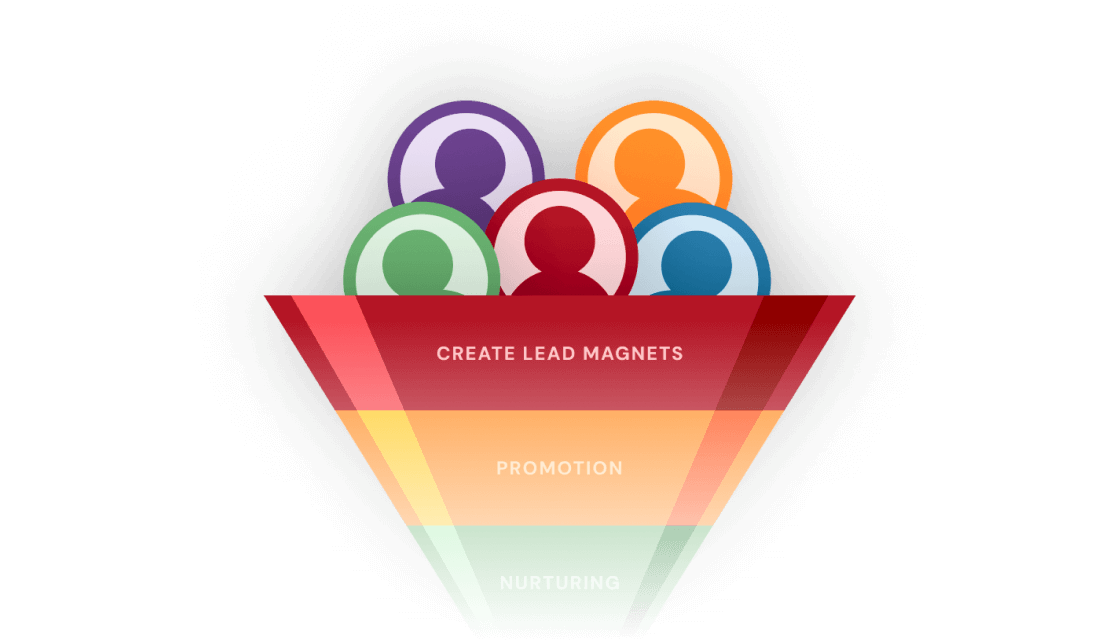Introduction
All businesses need customers to survive, but not everyone is ready to buy. Data shows only 3% are ready to pull out their wallets immediately. However, there’s a much larger group (40%) who are either ready to buy or interested but not right now—these are your business leads.
This guide explores what business leads are, why they matter, how to create a steady flow of new leads, and more. Let’s dive in!

What is the definition of a business lead?
A business lead refers to anyone a company can reach out to who fits their Ideal Customer Profile (ICP). While there are different categories of leads, for the purpose of this article, we’ll focus on leads who have shown genuine interest in your product or service. These individuals have shared their contact details (such as name, phone number, or email) and expressed an openness to stay connected until they’re ready to make a purchase.
It’s important to note that while this type of business lead has shown interest, they aren’t customers yet. They are considered prospects, and obtaining their information is only the first step in your sales cycle (or funnel).
What are examples of a business lead?
To help you better understand the concept, let’s go through a few hypothetical situations.
Example 1
Meet Jane. She’s a graphic designer who downloads a free guide on branding by submitting her contact information on your website.
What could you do after this?
Send Jane an automated email thanking her for downloading the guide. Ask her about her current branding projects and her biggest challenges. This will help gauge her interest level.
You can also offer Jane more valuable content, such as design templates, webinars, or case studies, to help her improve her branding efforts and educate her about your products.
Collect full name, job title, phone number, and company in your lead capture form. Use this data to send lead nurturing and retargeting campaigns.
TIP
Example 2
Now, let’s consider Tom. He’s a freelance writer who signs up for a trial and requests a product demo.
What could you do after this?
Offer Tom exclusive content through lead nurturing campaigns. Personalize emails based on the information collected during the signup process.
Example 3
Finally, meet Lisa. She’s an e-commerce manager who completes a survey on your business’s website. After Lisa finishes the survey, she sees a thank-you page.
What could you do after this?
Invite Lisa to subscribe to your newsletter, mentioning that she’ll receive regular updates on industry news, trends, and product offerings. Consider offering her a bonus for subscribing, such as a discount on her next purchase or access to exclusive content.
Why are business leads important?
Business leads are essential for keeping your company profitable. Without leads, no sales are possible. Here are some key reasons why business leads are crucial.
- Expanded Addressable Market: Generating business leads is crucial because it expands your potential customer base beyond the 3% who are ready to buy immediately. Leads include the additional 37% who are open to buying or interested but not ready now, allowing you to nurture relationships and eventually convert them into customers.
- Improved Sales Conversion: By nurturing these leads, you increase the likelihood of converting them into paying customers. This targeted approach boosts your sales conversion rates.
- Revenue Growth: Considered the first step in the sales process, generating and nurturing leads directly impacts your revenue. More leads mean more opportunities for sales, leading to consistent revenue growth. Effective lead generation strategies help maintain a steady stream of potential customers.
- Enhanced Customer Relationships: Engaging with leads helps build strong relationships. By providing valuable content and addressing their needs, you establish trust and credibility. This relationship-building fosters customer loyalty and long-term engagement.
- Better Customer Insights: Leads provide valuable information about your target audience. Analyzing lead data helps you understand customer needs, preferences, and behaviors, allowing you to tailor your marketing strategies and improve product offerings.
Targeting leads is more cost-effective than broad marketing campaigns. Focusing your efforts on individuals who have already shown interest ensures higher returns on your marketing investments.
BONUS
How to get leads for your business
Remember, the key is to collect contact information to follow up with potential customers. The easiest and most recommended way to get leads is by creating lead magnets and promoting them on your website, social media, or other platforms.
A lead magnet is a low-cost or free solution to a specific problem, designed to attract interest. It helps identify who is interested in your products or services and sets the stage for higher-cost offers later. Effective lead magnets engage leads and customers more efficiently and cost-effectively than core offers alone.
Another method for obtaining leads is using lead scraping software, which collects contact details from various sources. Examples include Hunter.io, Snov.io and Voila Norbert. However, we don’t recommend this approach, as it involves gathering information without consent, leading to cold outreach tactics that, if not executed well, can damage your reputation and result in low engagement.
What to do after getting new business leads
Getting a business lead is just the beginning of the sales process, here are a few more steps that you should take.
- Lead qualifying
- Lead nurturing
Lead qualifying: This involves assessing each lead against specific criteria and scores to determine their readiness for sales.
Lead nurturing: Here, the goal is to cultivate relationships with potential clients by offering valuable resources such as additional lead magnets, social media updates, and email content until they are ready to buy.
This stage presents an opportunity to showcase case studies and data-driven content, demonstrating how your product/service addresses their pain points across social media and email platforms.
Summary
What is a business lead and why is it important?
- Business leads definition: A business lead refers to anyone a company can reach out to who fits their Ideal Customer Profile (ICP).
- Importance: Business leads expand your potential customer base, improve sales conversion rates, drive revenue growth, enhance customer relationships, and provide valuable customer insights.
Examples of business leads:
- Jane: A graphic designer who downloads a free branding guide.
- Action: Send a thank-you email, gauge interest, and offer more valuable content.
- Tom: A freelance writer who signs up for a trial and requests a product demo.
- Action: Offer exclusive content and personalized emails through lead nurturing campaigns.
- Lisa: An e-commerce manager who completes a survey on your website.
- Action: Invite her to subscribe to your newsletter and offer a bonus for subscribing.
How to get leads for your business:
- Lead magnets: Create low-cost or free solutions to attract interest and identify potential customers.
- Lead scraping software: Tools like Hunter.io, Snov.io, and Voila Norbert collect contact details but may involve unsolicited contact and cold outreach, which can be less effective.
After getting new business leads:
- Lead qualification: Assess leads based on specific criteria to determine their readiness for sales.
- Lead nurturing: Build relationships by providing valuable resources and showcasing case studies and data-driven content until leads are ready to purchase.
Emerald Green is a free eCommerce website template for any interior decor store by Resource Kit. It is suitable for any eCommerce store, onlineshopping website, jewelry store, shopping mart website, online shopping cart, mobile store, clothing store, fashion store, t-shirt store, interior decor, vases store, room decor eCommerce store, etc.
bonus

Leave a Reply